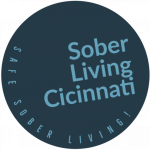Addiction can be a devastating and all-consuming struggle, affecting every aspect of a person’s life. For those who are ready to take the first steps towards recovery, there are various treatment options available. One such option is a Partial Hospitalization Program (PHP), which provides a comprehensive and structured approach to addiction recovery. In this guide, I will walk you through everything you need to know about PHP and how it can be an effective tool in your journey towards a healthier, happier life.
Understanding Addiction and the Need for PHP
Addiction is a complex disease that affects the brain and behavior, leading to uncontrollable cravings and compulsive drug-seeking behavior. It not only takes a toll on the individual struggling with addiction but also impacts their relationships, career, and overall well-being. Recognizing the need for professional help is the first step towards recovery.
Partial Hospitalization Programs (PHP) are designed to provide intensive treatment and support to individuals who require a higher level of care than traditional outpatient programs but do not need 24/7 supervision in an inpatient setting. PHP offers a structured environment where individuals can receive comprehensive treatment while still maintaining some level of independence.
Benefits of Partial Hospitalization Programs
- Flexibility and Structure: One of the key benefits of PHP is the flexibility it offers. Unlike inpatient programs that require individuals to stay at a treatment facility, PHP allows participants to attend treatment during the day and return home in the evening. This provides the opportunity to apply the skills learned in treatment to real-life situations immediately.
- Comprehensive Treatment: PHP offers a wide range of therapeutic interventions, including individual therapy, group therapy, family therapy, and specialized programs for co-occurring disorders. This comprehensive approach addresses the underlying causes of addiction and equips individuals with the tools and coping mechanisms necessary for long-term recovery.
- Continuity of Care: PHP bridges the gap between inpatient treatment and traditional outpatient programs, ensuring a smooth transition and continuity of care. After completing an inpatient program, individuals can transition to PHP to continue their recovery journey while gradually reintegrating into their daily lives.
How PHP Works: A Step-by-Step Guide
- Assessment and Evaluation: The first step in PHP is a thorough assessment and evaluation conducted by a team of addiction professionals. This includes a comprehensive review of the individual’s medical history, substance use patterns, and any co-occurring mental health disorders. The information gathered during this process helps tailor a personalized treatment plan.
- Structured Programming: PHP follows a structured schedule that typically involves full-day treatment, five days a week. Participants engage in a variety of therapeutic activities, including individual and group therapy sessions, educational workshops, recreational activities, and holistic therapies such as yoga or meditation. This structured approach provides a framework for recovery and helps individuals develop healthy routines.
- Continued Support: In addition to the structured programming, PHP offers ongoing support through case management and aftercare planning. Case managers work closely with individuals to identify their specific needs and create a comprehensive aftercare plan that includes ongoing therapy, support groups, and other resources to maintain long-term sobriety.
The Role of Therapy in PHP
Therapy plays a crucial role in the success of PHP. It provides individuals with a safe and supportive environment to explore the underlying causes of their addiction, develop healthier coping mechanisms, and learn essential life skills. Here are some of the therapy modalities commonly used in PHP:
- Individual Therapy: One-on-one therapy sessions with a licensed therapist allow individuals to address their unique challenges, explore their emotions, and develop personalized strategies for relapse prevention.
- Group Therapy: Group therapy provides a supportive community where individuals can share their experiences, learn from others, and develop interpersonal skills. It offers a sense of belonging and promotes empathy and understanding among participants.
- Family Therapy: Addiction affects not only the individual but also their loved ones. Family therapy helps repair and rebuild relationships, address family dynamics, and educate family members about addiction and recovery.
Medication Management in PHP
While therapy is a cornerstone of PHP, medication management can also play a crucial role in the recovery process. Medications may be prescribed to help manage withdrawal symptoms, reduce cravings, or treat co-occurring mental health disorders. The use of medications, in conjunction with therapy, can significantly improve the chances of successful recovery.
It is essential to note that medication management in PHP is closely monitored by medical professionals. A comprehensive evaluation is conducted to determine the appropriate medications, and their use is regularly reviewed and adjusted based on the individual’s progress and needs.
Conclusion: The Future of Addiction Recovery with PHP
Partial Hospitalization Programs (PHP) offer a comprehensive and structured approach to addiction recovery, providing individuals with the tools, support, and resources necessary for lasting sobriety. By offering a flexible yet structured environment, PHP bridges the gap between inpatient treatment and traditional outpatient programs, ensuring a smooth transition and continuity of care.
Therapy, both individual and group, plays a vital role in PHP, helping individuals explore the underlying causes of addiction, develop healthier coping mechanisms, and gain the necessary skills for long-term recovery. Medication management, when appropriate, can also enhance the effectiveness of treatment.
If you or a loved one is struggling with addiction, consider the benefits of a Partial Hospitalization Program. It may be the key to unlocking a brighter future and a life free from the grip of addiction. Call us today at 855-675-1892.













